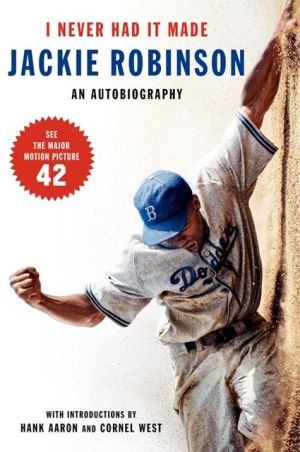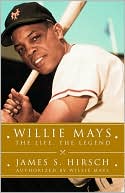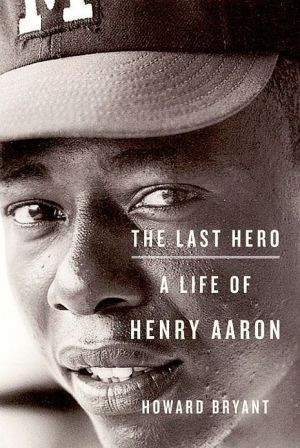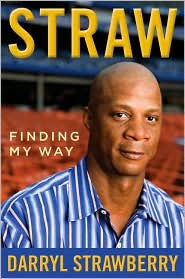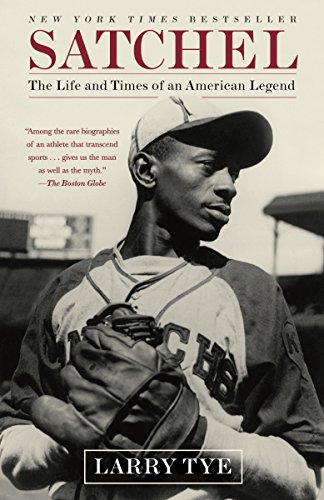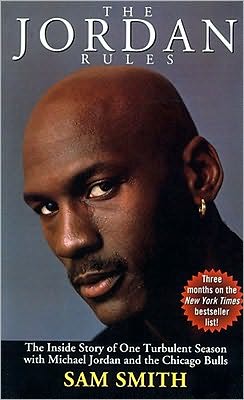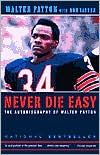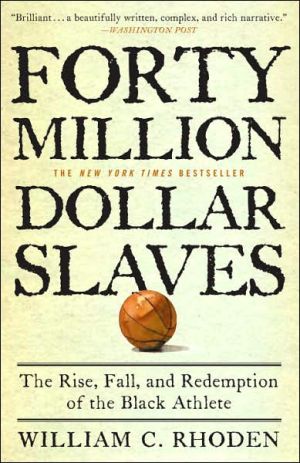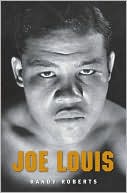I Never Had It Made
The Autobiography of a Boy of Summer Who Became a Man for All Seasons\ Before Barry Bonds, before Reggie Jackson, before Hank Aaron, baseball's stars had one undeniable trait in common: they were all white. In 1947, Jackie Robinson broke that barrier, striking a crucial blow for racial equality and changing the world of sports forever. I Never Had It Made is Robinson's own candid, hard-hitting account of what it took to become the first black man in history to play in the major leagues.\ I...
Search in google:
Before Barry Bonds, before Reggie Jackson, before Hank Aaron, baseball's stars had one undeniable trait in common: they were all white. In 1947, Jackie Robinson broke that barrier, striking a crucial blow for racial equality and changing the world of sports forever. I Never Had It Made is Robinson's own candid, hard-hitting account of what it took to become the first black man in history to play in the major leagues.I Never Had It Made recalls Robinson's early years and influences: his time at UCLA, where he became the school's first four-letter athlete; his army stint during World War II, when he challenged Jim Crow laws and narrowly escaped court martial; his years of frustration, on and off the field, with the Negro Leagues; and finally that fateful day when Branch Rickey of the Brooklyn Dodgers proposed what became known as the "Noble Experiment" — Robinson would step up to bat to integrate and revolutionize baseball.More than a baseball story, I Never Had It Made also reveals the highs and lows of Robinson's life after baseball. He recounts his political aspirations and civil rights activism; his friendships with Martin Luther King, Jr., Malcolm X, William Buckley, Jr., and Nelson Rockefeller; and his troubled relationship with his son, Jackie, Jr.Originally published the year Robinson died, I Never Had It Made endures as an inspiring story of a man whose heroism extended well beyond the playing field.Publishers WeeklyThis autobiography, which was originally published in 1972, the year Robinson died, is not about baseball: it's about the deep commitment that Robinson made to achieve justice for himself and all Americans. He recalls his years at UCLA, where he became the school's first four-letter athlete and met his future wife, Rachel. With the advent of WWII he was drafted into the army, became a lieutenant and was court-martialed for refusing to move to the back of a bus. He was honorably discharged. He played for the Kansas City Monarchs of the Negro Leagues until he was recruited by Branch Rickey of the Brooklyn Dodgers. In 1947 Robinson broke the color line in the major leagues and suffered terrible abuse for doing so. He discusses his relationships with the sports figures he admired, like Rickey and teammate Pee Wee Reese, and also recalls his run-ins with those he did not like, such as Dodger owner Walter O'Malley, who was ``viciously antagonistic,'' and sportswriter Dick Young, a ``racial bigot.'' Much of the book, written with freelancer Duckett, focuses on Robinson's political involvements after his career ended in 1956 and his friendships with such diverse characters as Martin Luther King, Malcolm X, William Buckley and Nelson Rockefeller. The most wrenching episodes in the book deal with Jackie Jr., who overcame his heroin addiction only to be killed in an automobile accident at age 24 in 1971. A disturbing and enlightening self-portrait by one of America's genuine heroes. Photos not seen by PW. (Apr.)
IntroductionixIntroductionxvPreface: TodayxxiThe Noble ExperimentIA Dream Deferred3IIThe Noble Experiment26IIIBreaking the Color Barrier37IVThe Major Leagues53V"Just Another Guy"71VIMy Own Man78VIIThe Price of Popularity87VIIIThe Growing Family104IXThe Ninth Inning116After the Ball GameXNew Horizons125XICampaigning for Nixon135XIIThe Hall of Fame Award141XIIIConflict at the Apollo145XIVCrises at Home151XVOn Being Black Among the Republicans162XVIDifferences with Malcolm X176XVIIThe Freedom Bank183XVIIIHope and Disillusionment in White Politics198XIXThe Influence of Martin Luther King, Jr.210XXJackie's Prison217XXIPolitics Today236XXII"... And He Was Free"244XXIIIAftermath259XXIVEpilogue268
\ Publishers Weekly - Publisher's Weekly\ This autobiography, which was originally published in 1972, the year Robinson died, is not about baseball: it's about the deep commitment that Robinson made to achieve justice for himself and all Americans. He recalls his years at UCLA, where he became the school's first four-letter athlete and met his future wife, Rachel. With the advent of WWII he was drafted into the army, became a lieutenant and was court-martialed for refusing to move to the back of a bus. He was honorably discharged. He played for the Kansas City Monarchs of the Negro Leagues until he was recruited by Branch Rickey of the Brooklyn Dodgers. In 1947 Robinson broke the color line in the major leagues and suffered terrible abuse for doing so. He discusses his relationships with the sports figures he admired, like Rickey and teammate Pee Wee Reese, and also recalls his run-ins with those he did not like, such as Dodger owner Walter O'Malley, who was ``viciously antagonistic,'' and sportswriter Dick Young, a ``racial bigot.'' Much of the book, written with freelancer Duckett, focuses on Robinson's political involvements after his career ended in 1956 and his friendships with such diverse characters as Martin Luther King, Malcolm X, William Buckley and Nelson Rockefeller. The most wrenching episodes in the book deal with Jackie Jr., who overcame his heroin addiction only to be killed in an automobile accident at age 24 in 1971. A disturbing and enlightening self-portrait by one of America's genuine heroes. Photos not seen by PW. (Apr.)\ \ \ \ \ Library JournalThis book essentially enlarges upon matters Duckett had covered with Robinson in an earlier work, Breakthrough to the Big League (1965). Included are introductions by Hank Aaron and Cornel West that provide fresh perspectives on the significance of the legendary star's breaking of major league baseball's color barrier. With each retelling, it is clear that Robinson's story has become less a baseball story than a major cultural milestone in the nation's history. As George Will is quoted as saying, it was "one of the great achievements not only in the annals of sport, but of the human drama anywhere, anytime." Appropriate for both adult and young adult collections.-William H. Hoffman, Ft. Myers-Lee Cty. P.L., Fla.\ \
